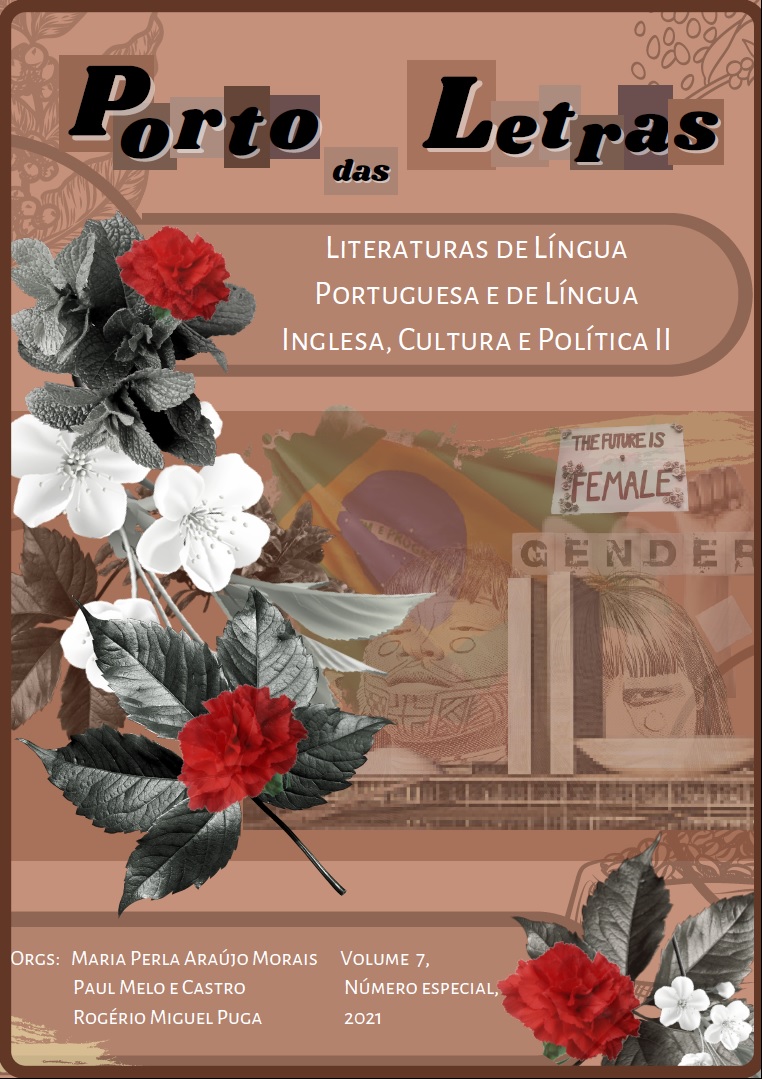LEITH: PLACE OF ABANDON AND OPPRESSION IN IRVINE WELSH’S TRAINSPOTTING
Keywords:
Leith, Irvine Welsh, Social behaviour, Working class, OppressionAbstract
The present article approaches representations of Leith – a district in Edinburgh, (capital city of Scotland) – in the novel Trainspotting (1993), by the contemporary Scottish writer Irvine Welsh, in an attempt at discussing the potential oppressive character of the district when it comes to the formation of identities and behaviours of the fictional characters who are originally from the region. Leith is a peripheral neighbourhood, whose population, mostly proletarian in origin, faced a context of want, need and violence for decades, especially in the 1980’s, during the rule of Prime Minister Margaret Thatcher. Using notions by authors of the field of cultural geography, such as Corrêa (2013), Le Bossé (2013) and Haesbaert (2013), who argue, in general terms, that geographical spaces directly influence the formation of social behaviours, we approach the centrality of Leith in the selected work, as well as its significance pertaining the way of acting of the characters, whose experiences are shaped by poverty, lack of opportunities, want of resources and the underworld of crime. We also discuss, with the aid of authors such as Clarke (2004) and Vernon (2017), the historical moment represented in the novel, as it is a key factor for understanding the whole context which is presented.
References
CORRÊA, Roberto Lobato. “O urbano e a cultura: alguns estudos”. In: CORRÊA, Roberto & ROSENDAHL, Zeny (orgs.). Geografia Cultural: uma antologia, volume II. Rio de Janeiro: EdUERJ, 2013. E-book.
HAESBAERT, Rogério. “Identidades territoriais”. In: CORRÊA, Roberto & ROSENDAHL, Zeny (orgs.). Geografia Cultural: uma antologia, volume II. Rio de Janeiro: EdUERJ, 2013. E-book.
HARVEY, David. A Brief History of Neoliberalism. New York: Oxford University Press, 2007. E-book.
KENNEDY, Tristan. “How Irvine Welsh Went from Enfant Terrible to the Scottish Tourist Board's Favourite Guy”. In: Vice News. 18 dez. 2019. Disponível em: <https://www.vice.com/en_uk/article/g5xpp7/irvine-welsh-profile-scotland-trainspotting> Acesso em 30 abr. 2020
LE BOSSÉ, Mathias. “As questões de identidade em geografia cultural – algumas concepções contemporâneas”. In: CORRÊA, Roberto & ROSENDAHL, Zeny (orgs.). Geografia Cultural: uma antologia, volume II. Rio de Janeiro: EdUERJ, 2013. E-book.
LEISHMAN, David. “A Parliament of Novels: the Politics of Scottish Fiction 1979-1999”. In: Revue Française de Civilisation Britannique, XIV-1, 2006. Disponível em: <http://rfcb.revues.org/1175> Acesso em 17 nov. 2018.
MACLEOD, Lewis. “Life among the Leith Plebs: Of Arseholes, Wankers, and Tourists in Irvine Welsh’s Trainspotting”. Studies in the Literary Imagination. 41.1 [S.l.], 2008. 89-106.
MCKAY, Ron. “Would the Real Irvine Welsh shoot up?” Disponível em: < https://www.theguardian.com/theobserver/1996/feb/04/featuresreview.review> Acesso em 30 abr. 2020.
MITCHELL, Hillary. “The fascinating history of the Banana Flats: Edinburgh’s most iconic Brutalist megastructure”. Disponível em: <https://www.edinburghlive.co.uk/news/edinburgh-news/fascinating-history-banana-flats-edinburghs-15602701> Acesso em 03 maio 2020.
MORACE, Robert. Welsh’s Trainspotting. New York: Continuum, 2001.
MORACE, Robert. Irvine Welsh (New British Fiction). New York: Palgrave MacMillan, 2007.
SKINNER, John. “Contemporary Scottish Novelists and the Stepmother Tongue”. In: HOENSELAARS, Ton; BUNING, Marius (orgs.). English Literature and Other Languages. Amsterdam: Rodopi, 1999. 211-220.
VERNON, James. Modern Britain: 1750 to the Present. Cambridge: Cambridge University Press, 2017.
WELSH, Irvine. Trainspotting. New York: W. W. Norton & Company, 1996.
WELSH, Irvine. Glue. London: Vintage, 2002.
WELSH, Irvine. The Blade Artist. London: Penguin Random House, 2016.
WELSH, Irvine. Porno. New York: W. W. Norton & Company, 2003.
WELSH, Irvine. Skagboys. London: Jonathan Cape, 2012.
WELSH, Irvine. Dead Men’s Trousers. London: Jonathan Cape, 2018.
Downloads
Published
How to Cite
Issue
Section
License
Os autores concordam com os termos da Declaração de Direito Autoral, que se aplicará a esta submissão caso seja publicada nesta revista (comentários ao editor podem ser incluídos a seguir).

